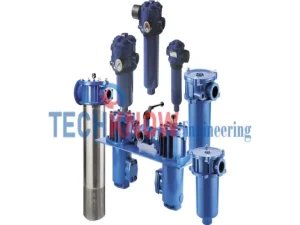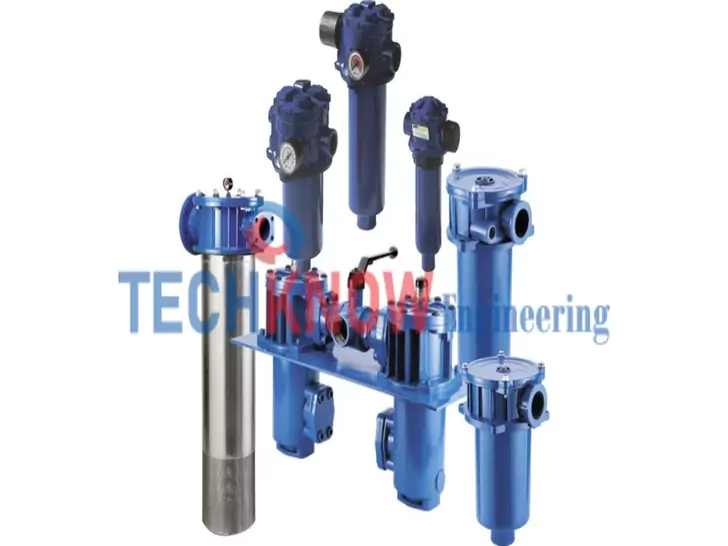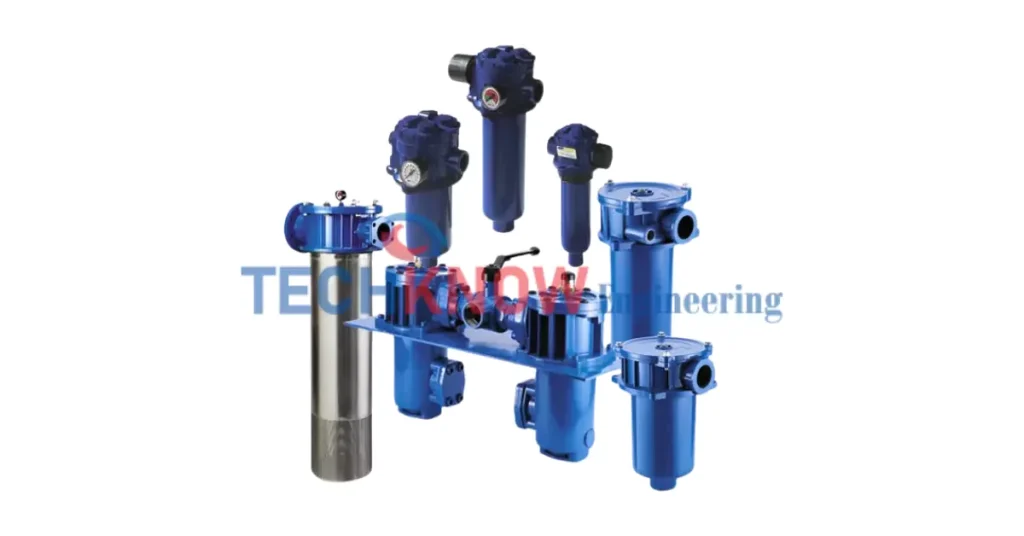What Are Return Line Filters Used For?
Return Line Filters are essential components that keep hydraulic systems running smoothly by removing contaminants from hydraulic fluid before it returns to the reservoir. These specialised filters protect your entire hydraulic system from damage caused by debris, metal particles, and other pollutants that accumulate during operation.
Understanding how return line filters work and their applications can help you maintain optimal system performance and extend equipment life. From mobile machinery to industrial manufacturing, these filters play a crucial role in hydraulic system reliability.
How Return Line Filters Work
Return line filters are positioned between the hydraulic system’s return flow and the main reservoir tank. As hydraulic fluid completes its circuit through actuators, motors, and valves, it carries accumulated contaminants back towards the storage tank.
The hydraulic return line filter intercepts this returning fluid and passes it through a filter element designed to capture particles of specific sizes. Most return line filter elements can remove contaminants ranging from 3 to 25 microns, depending on the application requirements.
The filtered fluid then flows into the hydraulic tank, ensuring clean oil is available for the next operating cycle. This continuous filtration process prevents contaminant buildup that could damage pumps, valves, and seals throughout the system.
Common Applications for Return Line Filters
- Industrial Manufacturing: Manufacturing facilities use hydraulic return line filters in press equipment, injection moulding machines, and automated assembly lines. These applications demand consistent performance, making contamination control critical for maintaining production schedules.
- Mobile Equipment: Construction machinery, agricultural equipment, and material handling vehicles rely on hydraulic tank return filters to operate in dusty, harsh environments. The constant exposure to external contaminants makes return line filtration especially important for mobile applications.
- Power Generation: Hydraulic systems in power plants use return line oil filters to protect governor controls, turbine actuators, and safety systems. The high reliability requirements in power generation make proper filtration non-negotiable.
- Marine and Offshore: Ships and offshore platforms utilise hydraulic return filters in deck machinery, steering systems, and drilling equipment. The marine environment’s corrosive conditions place additional demands on filtration systems.
Key Benefits of Return Line Filters
- Extended Component Life: Clean hydraulic fluid reduces wear on pumps, valves, and cylinders by eliminating abrasive particles. This protection significantly extends component service intervals and reduces replacement costs.
- Improved System Reliability: Consistent filtration prevents sudden system failures caused by contaminated fluid. Return line filters help maintain stable operation in critical applications where downtime is costly.
- Better Fluid Quality: By continuously removing contaminants, return line filters help preserve hydraulic fluid properties. This maintains proper viscosity, lubrication characteristics, and anti-wear protection throughout the fluid’s service life.
- Reduced Maintenance Costs: Cleaner systems require less frequent fluid changes and component replacements. The investment in quality return line filtration typically pays for itself through reduced maintenance expenses.
Choosing the Right Return Line Filter
- Filter Element Selection: Return line filter elements come in various micron ratings and flow capacities. Consider your system’s cleanliness requirements, flow rates, and operating pressure when selecting elements. Popular brands like Hydac, Rexroth, and Hydroline offer elements designed for specific applications.
- Mounting Options: Hydraulic tank top return filters mount directly to the reservoir, while in-line versions install within the return piping. Tank-mounted units are easier to service, whilst in-line filters offer more flexible positioning.
- Bypass and Indicator Features: Many hydraulic tank return filters include bypass valves that allow flow continuation if the element becomes blocked. Visual or electronic indicators help monitor element condition and schedule replacements.
Essential Maintenance Tips
- Regular Element Replacement: Replace return line filter elements according to manufacturer recommendations or indicator readings. Typical replacement intervals range from 500 to 2,000 operating hours, depending on contamination levels.
- Monitor Differential Pressure: Most return line filters include pressure gauges or electronic sensors that measure the pressure drop across the element. Rising differential pressure indicates element loading and approaching replacement time.
- Inspect Housing and Seals: During element changes, inspect the filter housing for damage and replace O-rings and seals as needed. Proper sealing prevents bypass flow that reduces filtration effectiveness.
- Document Maintenance Activities: Keep records of element replacement dates, operating hours, and any system contamination issues. This data helps optimise maintenance schedules and identify potential problems.
Protecting Your Hydraulic Investment
Return line filters represent a small investment that delivers significant returns through improved system reliability and reduced maintenance costs. Whether you’re specifying filters for new equipment or upgrading existing systems, proper return line filtration is essential for long-term hydraulic system health.
Quality suppliers like Techknow Engineering Enterprise can help you select the right combination of housing, elements, and accessories for your specific application. Investing in proper return line filtration today prevents costly repairs and system failures tomorrow.
Return line filters

Return line filters are used in hydraulic systems to clean the fluid before it re-enters the reservoir. By capturing dirt, metal particles, and debris, they prevent contamination buildup, extend equipment life, reduce downtime, and enhance overall system efficiency and reliability.
Product Brand: Techknow Engineering Enterprise
Product Currency: INR
Product In-Stock: InStock
5


